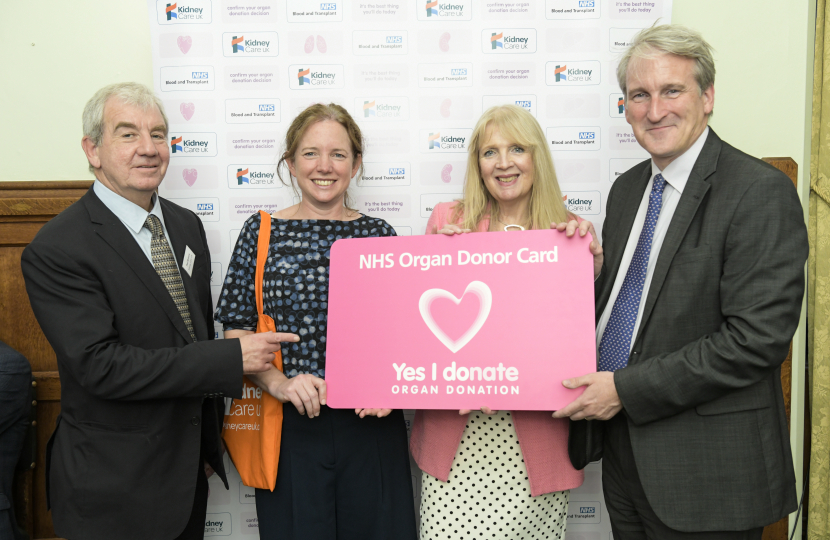
This week's article for the Herald and Post...
It has been another incredibly busy week both in Parliament and in the constituency.
On Friday I was able to get out and about with Vodafone in Bordon to hear about their proposed improvements to the 4G and 5G network ahead of the 3G signal being switched off later this year. I know many East Hants residents, particularly those living in the more rural parts of the constituency, are frustrated with patchy or non-existent coverage, so hopefully these upgrades will start to improve things a bit.
I also met with the Hampshire and Isle of Wight Constabulary, along with other local MPs, to hear about structural changes to the force, under the command of the new Chief Constable, Scott Chilton. Alongside this, we were updated about a number of local initiatives, including the new police station at Petersfield, which will open its doors next summer.
One of the highlights of last week for me though was the Kidney Care UK drop in event in Parliament. This event was timed to coincide with Organ Donation Week, which has been running throughout this week.
This brilliant charity, which is also Alton based, does incredible work to try and increase the number of kidney donors on the register.
What really struck me is the stubbornly high numbers of people who are still waiting for an organ donor. More than 7,000 are awaiting a transplant in the UK and eighty percent of this number are waiting for a kidney donor.
There are a number of factors driving this.
Although the recent Organ Donation Act effectively made organ donation an opt out rather than an opt in for most people, the consent rate for donation has this year fallen from 66% to 62%.
Kidney Care UK think this is largely to do with families of the bereaved not being entirely sure of the wishes of their loved ones so are deciding against organ donation.
Kidney disease is also on the rise. Whilst it is quite common, it is also largely preventable. High blood pressure and cholesterol, a poor diet, lack of exercise, diabetes, and long-term use of anti-inflammatory medicines, such as ibuprofen, can all increase your chances of contracting the disease.
Some sufferers are able to successfully manage the condition, whereas others are not so lucky and end up in the queue for a transplant. This includes the 146 Hampshire residents currently on the list.
And, of course, Covid played havoc with waiting lists for transplant patients. Transplant beds were given over to intensive care to deal with the huge numbers requiring intubation, and doctors had to make difficult decisions on whether the benefits of receiving a transplant outweighed the risk of being immunosuppressed during a pandemic.
From spending time with the team from Kidney Care UK and all those who came along to support last week’s event, including a number of individuals who had successfully had a kidney transplant, I learnt that there are two very simple things we can each do to help those waiting for a donor. Firstly, speak to our families about our wishes after we die and, secondly, register this on the organ donation website.
That way everybody is clear, and it means that incredibly difficult discussions around organ donation in the immediate aftermath of a loved one’s death can be avoided. More importantly though, it means many more lives can be saved. https://www.organdonation.nhs.uk/


